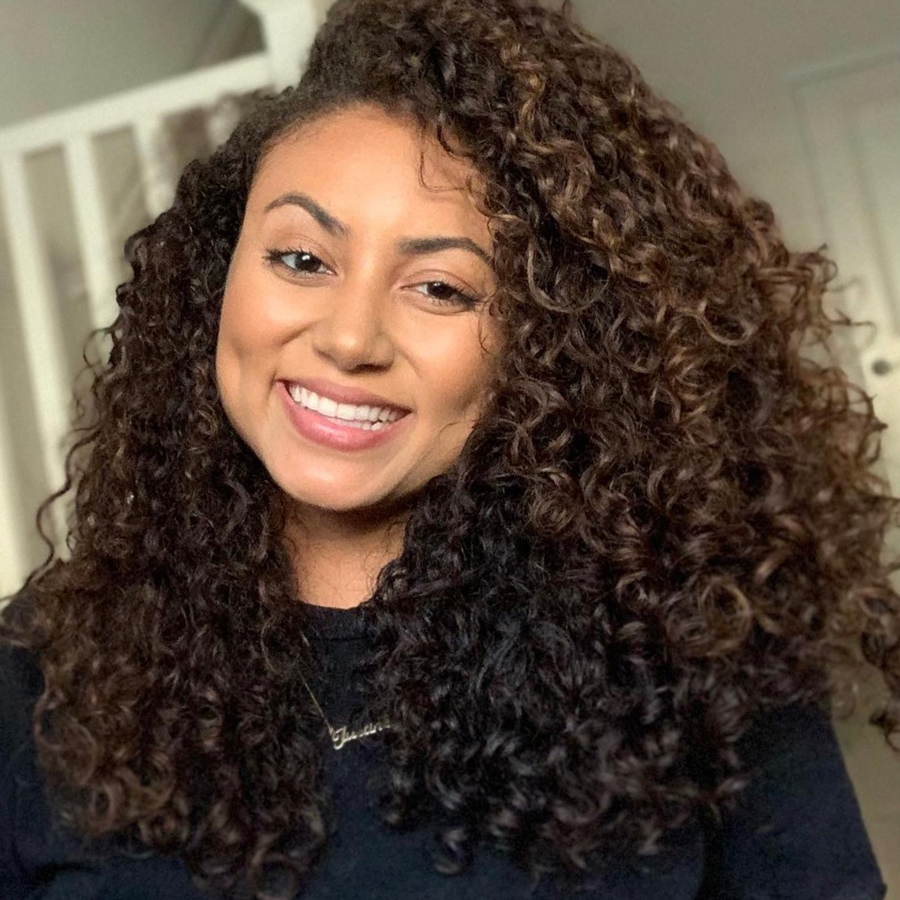
Master of Science in School Counseling
Make a lasting impact in the lives of young learners through CBU’s MS in School Counseling degree. Gain practical counseling skills, experience and the Pupil Personnel Services (PPS) Credential to support students, families and school personnel.
Support Students through Culturally Competent Practices
As a school counselor, you are passionate about helping students through life’s challenges by providing holistic guidance during their academic, career and personal growth. California Baptist University’s school counseling master’s degree program gives you the training, tools and opportunities to impact students’ lives and become a safe presence in educational settings. Our dedicated faculty and comprehensive curriculum ensure you are equipped to cultivate effective working relationships with students and their families and school personnel.
*Based on current academic year. Subject to change.
Why Earn a Master's in School Counseling at CBU?
By nature, school counselors are compassionate and multifaceted — traits that sustain them as they serve their student body and other school personnel. From providing career guidance to assisting students with familial problems, school counselors call upon evidence-based practices, strong interpersonal skills and a people-focused perspective to be a resource for students.
If you have a background in education or psychology and are interested in pursuing a purposeful career in education, then earning your MS in School Counseling may be the next right step for you.
Blend theory and practical experience
CBU’s MS in School Counseling degree prepares graduates to plan, implement and evaluate students’ academic, career, personal and social development and provide consultation and training to teachers and parents to meet students’ unique needs. From the first semester, you are immersed in hands-on experiences that solidify your knowledge of foundational concepts. The blend of theory and practical experience provides a model for success in your internship and career as a school counselor.
Learn with a cohort
The school counseling degree utilizes the cohort model, which means the small group of students you enter the program with will progress with you throughout the program together. This facilitates a cooperative learning environment that cultivates relationships for vocational networking.
Prepare to pass the School Counselor Exam
CBU’s Pupil Personnel Services (PPS) Credential in School Counseling prepares graduates to take the standardized School Counselor Examination (ETS/PRAXIS II), which helps you to advance in a career as a school counselor in numerous educational settings. Our program provides a seamless educational experience during which graduates earn their Master of Science in School Counseling and PPS Credential simultaneously.
The Pupil Personnel Services Credential programs (in school psychology and school counseling) offered by CBU’s Dr. Bonnie G. Metcalf School of Education are approved by the California Commission on Teacher Credentialing (CTC).
What You'll Learn
To prepare you for your upcoming career as a school counselor, learn about:
- Major theoretical approaches to counseling, which include person-centered counseling, solution-focused brief therapy, rational-emotive behavior therapy and others.
- The theory, roles and functions of school counselors as well as current issues within the profession.
- Designing comprehensive K-12 school counseling programs within the ASCA National Model Framework.
- Implementing culturally competent practices to connect with students in increasingly diverse schools.
- Legal and ethical practices and issues faced in educational settings as well as professional standards, confidentiality laws, family and student rights and more.
- Key concepts of crisis response in educational settings to empower counselors to take effective action when students encounter traumatic situations, mental health issues, familial duress and other life-altering situations.
- Supporting students through school-based career development programs.
- Educational interventions.
Program Details
- PPS candidates communicate in a supportive, problem-solving fashion using active listening, flexibility and effective facilitation.
- PPS candidates have an awareness of cultural factors that impact student development, behavioral functioning and home interactions. PPS candidates understand the implications of diversity upon the design and administration assessments and interventions.
- PPS candidates help students, parents and teachers effectively access technology as well as how to enhance learning with appropriate technologies. PPS candidates use technology and database in evidence-based practice, decision-making, program evaluation, assessment and progress monitoring.
The MS in School Counseling program consists of four sequences: core requirements, school counseling requirements, practicum course requirements and field experience requirements. Within these four sequences are 48 required units, including traditional coursework, 100 hours of introductory fieldwork and 800 hours of field experience/internship once coursework is completed. When these requirements are fulfilled, students must earn a passing score on the required School Counseling Praxis Exam.
The school counseling degree program is designed to be completed in two and a half years. Degree requirements must be finished within five years; however, students may petition the School of Education for an extension.
PPS 521: Developing Culturally Competent Practice
This course prepares school counselors and school psychologists with the knowledge, perspectives and skills needed for effective practice in America’s increasingly diverse schools.
PPS 533: Crisis Response, Behavior Intervention and Management
This course focuses on the basic aspects of effective crisis response within the educational setting.
PPS 528: School Counseling Leadership and Advocacy
In this course, students analyze the shifting role of K-12 school counselors as school leaders and learn how to effectively advocate for their programs.
What are the program’s entry dates and application deadline?
The MS in School Counseling with a PPS Credential is typically offered as a cohort-based model. The cohort model requires at least 10 students to begin and allows students to progress through the program together, encouraging connection and competence.
For priority application, the deadline is May 15. The deadline for the standard application is August 1.The program begins in the fall as cohorts form. For more information, review the application requirements and deadlines.
How long does the program take?
This program can be completed in three years by taking seven units in the spring, summer and fall terms. Please contact the graduate programs advisor at the Metcalf School of Education or attend a Graduate Program Information Session for more detailed program completion details.
Can I work full-time while enrolled in the program?
Yes, during years 1 and 2. However, students will be required to complete fieldwork during their studies. Students are not able to work full-time in year 3.
At CBU, we work to make sure our graduate programs are affordable and competitively priced. The master’s in school counseling degree is $785 per unit plus fees.
To help manage the cost of attendance, graduate students are encouraged to apply for various financial aid options. For more information, connect with CBU’s graduate financial aid counselors.
As you make decisions about graduate school, keep in mind the full social, spiritual and educational experience awaiting you at CBU. Here, you will be supported by professors, staff and fellow students who will help you discover your strengths and challenge you to do more than you ever thought you could. Let us equip you with the education, training and opportunities you'll need to start making a unique difference doing what you love.
| Application Deadlines | Fall |
|---|---|
| Priority | May 15 |
| Standard | August 1 |
Career Outlook for School Counselors
School counselors’ employment outlook is bright. According to the U.S. Bureau of Labor Statistics (BLS), school counselors’ employment is expected to grow 10 percent in the coming decade, which is nearly double the national average for all occupations. Additionally, the median annual salary for school counselors is $60,510; however, earning potential can vary based on employment location.
Related Programs
Find Your Calling
Find your God-given purpose in California Baptist University’s MS in School Counseling program. To begin your journey to becoming a school counselor, request more information or start your CBU application today.




